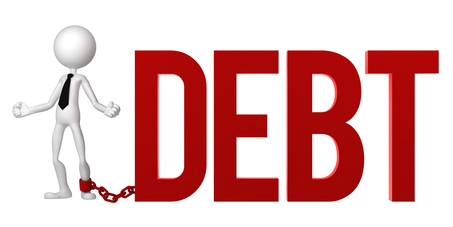Mind on my money: Black Personal Finance 101
Managing Debt

There is probably no feeling more frustrating that the despair an individual feels when they are having financial issues. Debt issues ranks as the leading stress factor for the average American. In a tight economy, such as we are currently experiencing, the feeling of despair can be overwhelming.
Many individuals have only now suddenly realized how deeply in debt they are and are confronted with very sober realization that they are in over their heads. But while dealing with debt can be a significant challenge, the fact is, it can be managed. As with credit, the key to effective debt management is...surprise, surprise, surprise- knowledge and education. What is Debt? In order to manage debt, it is first important to understand debt. Debt can be defined as using future purchasing power in the present. In regards to personal finances, debt can be explained as money owed to a lender for purchases not made in cash. Debt is the other side of the credit coin and, like credit, it is simply a tool to be used to an end. When used responsibly, debt can be a powerful tool that can enrich your life. As with every powerful tool however, if not used properly, debt can lead to disastrous consequences. While credit can be thought of as money that is available to be used, debt is when a portion of your available credit is used resulted in the creation of an outstanding balance. It is important to differentiate between different categories of debt. There are secured debts, unsecured debts, "good" debts and "bad" debts. Secured debts are backed by some sort of physical collateral. Secured debts would be mortgages, car loans and furniture store loans. These are loans where if a consumer defaults, the creditor reserves the right to retake possession of the item purchased with the loan. On the other hand, unsecured debts are debts that are not secured by any real property. These debts include credit cards and personal loans. These loans are secured by no more than your signature and word. Additionally debts can be considered "good debts" or "bad debts". A good debt is considered to be something that increases with value and adds to a your net worth. A mortgage would be an example of a secured, good debt. By contrast, a bad debt is considered to be an item that immediately loses value. The classic example of a bad debt is a new car that depreciates as soon as it is driven off of the car lot. next: Addicted to Debt
|
Popular Articles
|

